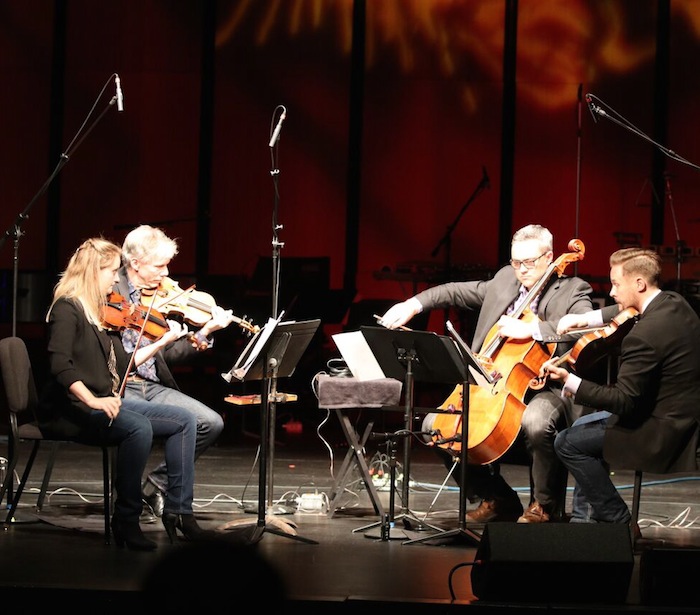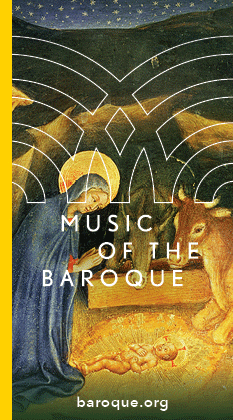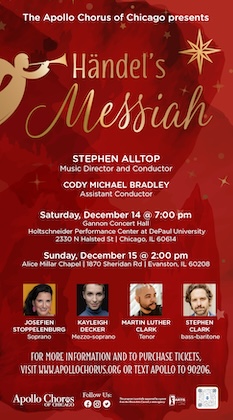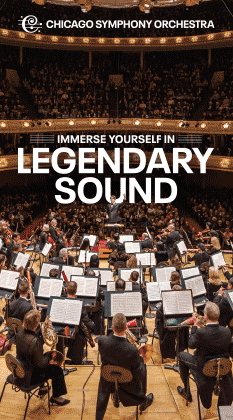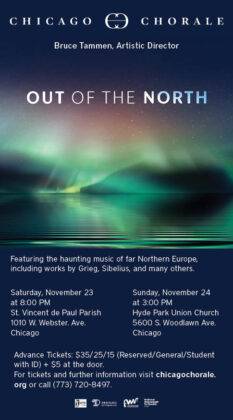Ear Taxi hits cruising speed and a few bumps with six premieres
That the Ear Taxi Festival is spotlighting so much contemporary music and so many different composers in less than a week is laudable indeed. Yet presenting dozens of new works in such a short period of time inevitably means less inspired works will surface alongside those worth hearing a second or third time. If one went to a concert in Mozart’s or Brahms’ times, one would have encountered plenty of substandard music from the Salieris of their day as well.
Such thoughts came to mind during the final set of Friday night’s Ear Taxi lineup at the Harris Theater. Ensemble Dal Niente is one of our finest new-music groups but not always as discerning in their repertory as one would wish, as was evident in their set of three world premieres.
Like so much of today’s music from young composers, Pierce Gradone’s To Paint Their Madness and Chris Fisher Lochhead’s stutter-step the concept evince all the tropes of new music without displaying any palpable distinction or individuality in the handling of their material. Busy, disconnected fragments, check. Short, epigrammatic bursts, check. Breathy flute accents, check. No motif longer than five notes, check. The two works seemed virtually interchangeable in their busy, academic emptiness. Conductor Michael Lewanski drew vital, tautly focused playing from the chamber ensemble.
Jeff Parker’s Water on Glass at least showed some individuality, even if the helicopter-like electronics he coaxed from his synthesizer undermined the see-sawing, shimmering textures of Dal Niente’s live playing.
Two of Chicago’s finest string quartets were heard earlier in the evening, with sets that offered greater rewards, in no small part due to the wider stylistic variety of their selections.
One of the most salutary aspects of Ear Taxi is its congruence with other local music organizations. The festival will close with the CSO’s first MusicNOW concert of the season Monday night. And Friday’s lineup began with Ear Taxi joining forces with the Latino Music Festival. The sampling of works by Latin composers was performed by the Avalon String Quartet in the Harris Theater’s “Cube Space,” which apparently sounds more cool than “first-floor lobby.”
Enric Riu’s From Freigeld to the Bitcoin wasn’t completed in time, so Avalon substituted Osvaldo Golijov’s Tenebrae. Golijov’s output is wildly uneven, but this somber threnody for string quartet remains one of his most affecting and deeply felt works. One jarring intonational lapse apart, the Avalon members played with admirable concentration and a deep vein of burnished expression.
Elbio Barilari’s Musing on the Nature of Time was inspired by the opening movement of Mozart’s Clarinet Quintet, though in the program note the composer claims that his end result “doesn’t sound like Mozart at all.”
Oh, really? Helen Keller would have recognized this as Mozart’s quintet. It’s basically Mozart’s score with Barilari overlaying a few new notes, rhythmic turns and harmonizations. The confection was played gracefully by the Avalon musicians and clarinetist Wagner Campos. But, as with decaf coffee, what is the point?
Gustave Leone’s String Quartet No. 4 offered more substantial fare, and was heard in its U.S. premiere. Jointly dedicated to the Avalon Quartet and Columbia’s Cuarteto Q-Arte, the work consists of a single movement of 14 minutes though the breaks between three sections are clearly delineated.
The music begins with quick agitated music, the fragments batted back and forth between the four players, leading to an angular new theme, played with admirable drive and energy. The second section offers a repeated-note theme that segues into an easygoing folk-like violin melody that grows louder and more insistent. A driving syncopated final section was dug into with great vitality by the Avalon players leading to an emphatic coda. Leone’s quartet is skillfully crafted and makes deft use of its elemental material.
The Spektral Quartet’s mainstage set presented three world premieres as well. First up was George Lewis’s String Quartet No. 1.5, which the Harris audience got to hear a good chunk of twice since Spektral cellist Russell Rolen broke a string halfway through. While his colleague did a quick repair offstage, Spektral’s unflappable violist Doyle Armbrust vamped, asking for a show of hands whether to start over again from the beginning, and the completists won.
Lewis has several regular champions, perhaps most notably the International Contemporray Ensemble. His first string quartet, “Experiments in Living,” begins in compelling fashion, with stark, closely argued music with theremin-like sounds. Ultimately, however, Lewis’s quartet sounds like a throwback to the arid, academic 1960s in its insect buzzing, crunched harmonies and grinding dissonance, with some mid-period Bartok thrown into the mix. The Spektral players gave it their all–maybe a bit more cautiously the second time around–but Lewis’s music is one of those works that sound more interesting to play than to listen to.
Samuel Adams’ Quartet Movement is made up of six short sections totaling ten minutes. With its Webern-like compression of material, there are intriguing moments in Adams’ atomistic, sharply contrasted miniatures–a lyrical viola solo, military-like tattoo, and, not least, Adams’ use of electronics with live microphones placed on snare drums; the plugged-in resonance continues to vibrate after the musicians stop playing. Adams’ movement is apparently part of a larger work he is writing for Spektral and feels somewhat like the work in progress it is. I look forward to hearing how his ideas further develop.
Tomeka Reid’s Prospective Dwellers closed the Spektral set. Reworked from a larger suite by the jazz cellist-composer, this brief item is closer to an encore piece but Reid’s amiable populist style sounded wonderfully fresh—lyrical, engaging and unpretentious.
Ear Taxi Festival continues through Monday night. Eartaxifestival.com
Posted in Uncategorized
